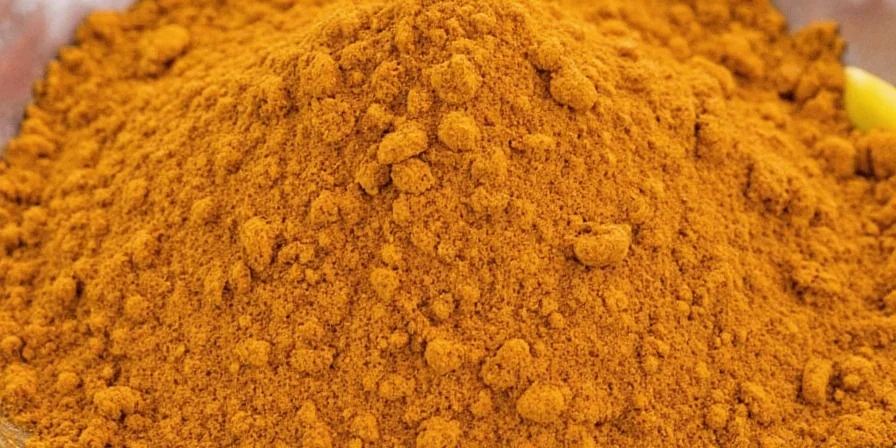What is Curry Powder?
Curry powder is a vibrant blend of spices that hails from the Indian subcontinent. It is an essential ingredient in many culinary traditions, particularly in Indian, Thai, and Caribbean cuisines. At its core, curry powder is not a singular spice, but rather a harmonious combination of various spices, each contributing its unique flavor and health benefits.
The Origins of Curry Powder
The term 'curry' is derived from the Tamil word 'kari,' which means sauce. Historically, curry powder was developed by the British during the colonial period as a way to replicate the complex flavors of Indian cuisine. While authentic Indian curries involve a meticulous blending of spices often tailored for individual recipes, curry powder provides a convenient shortcut for home cooks.
Common Ingredients in Curry Powder
- Coriander: Adds a citrusy and slightly sweet flavor.
- Cumin: Offers an earthy, nutty taste that enhances the blend.
- Turmeric: Known for its vibrant yellow color and anti-inflammatory properties.
- Ginger: Contributes a warm, spicy note that balances the blend.
- Black Pepper: Provides heat and depth to the flavor profile.
- Cinnamon: Adds a hint of sweetness and warmth.
- Cloves: Imparts a strong, aromatic flavor that complements the other spices.
- Cardamom: Offers a sweet and spicy flavor, often used in Indian desserts.
Types of Curry Powder
While there are countless variations of curry powder, here are a few popular types:
| Type | Description |
|---|---|
| Indian Curry Powder | Typically features a complex mix of spices, often including fenugreek and mustard seeds, along with the common spices mentioned above. |
| Thai Curry Powder | Usually contains lemongrass, galangal, and kaffir lime leaves, lending a distinct citrus flavor. |
| Caribbean Curry Powder | Often includes allspice and has a sweeter, milder flavor profile. |
Health Benefits of Curry Powder
Curry powder is not just a flavor enhancer; it also boasts numerous health benefits attributed to its individual ingredients:
- Anti-inflammatory Properties: Turmeric, the primary ingredient in curry powder, contains curcumin, which has potent anti-inflammatory effects.
- Digestive Aid: Spices like cumin and ginger can enhance digestion and alleviate gastrointestinal issues.
- Antioxidant Effects: Many spices in curry powder are rich in antioxidants, helping to combat oxidative stress in the body.
- Heart Health: Some studies suggest that the spices in curry powder may have a positive impact on heart health by reducing cholesterol levels.
How to Use Curry Powder in Cooking
Curry powder is incredibly versatile and can be used in a variety of dishes. Here are some tips for incorporating it into your cooking:
1. Curries and Stews
The most obvious use of curry powder is in making curries and stews. Simply sauté your choice of protein and vegetables, then add curry powder along with coconut milk or broth for a flavorful dish.
2. Marinades
Mix curry powder with yogurt or olive oil to create a delicious marinade for meats, tofu, or vegetables. Let them sit for at least an hour to allow the flavors to penetrate.
3. Soups
Add a teaspoon or two of curry powder to soups to introduce warmth and complexity. It works well in lentil soup, butternut squash soup, and even chicken soup.
4. Rice and Grain Dishes
Stir curry powder into cooked rice or quinoa for a simple yet flavorful side dish. You can enhance it further by adding sautéed onions, garlic, and peas.
5. Salad Dressings
Mix curry powder into your homemade salad dressings for an exotic twist. Combine it with lemon juice, olive oil, and honey for a delicious dressing.
Storage Tips for Curry Powder
To maintain the flavor and potency of your curry powder, follow these storage tips:
- Keep it Cool: Store curry powder in a cool, dark place away from direct sunlight and heat sources.
- Airtight Container: Use an airtight container to prevent moisture from degrading the spices.
- Check Expiry Dates: Spices tend to lose their potency over time. Check expiry dates and replace them as needed.
DIY Curry Powder Recipe
If you want to create your own blend, here’s a simple recipe:
- 2 tablespoons coriander seeds
- 2 tablespoons cumin seeds
- 1 tablespoon turmeric powder
- 1 tablespoon black peppercorns
- 1 tablespoon mustard seeds
- 1 tablespoon fenugreek seeds
- 1 tablespoon ground ginger
- 1 teaspoon cinnamon
- 1 teaspoon cloves
1. Toast the seeds in a dry skillet over medium heat until fragrant. 2. Allow to cool, then grind them into a fine powder. 3. Mix in the remaining powdered spices and store in an airtight container.
Conclusion
Curry powder is more than just a spice; it is a culinary marvel that brings warmth, depth, and nutrition to a wide array of dishes. By understanding its origins, varieties, health benefits, and uses, you can elevate your cooking and enjoy the rich flavors of this incredible spice blend. Whether you are whipping up a quick weeknight curry or experimenting with new recipes, curry powder is sure to become a staple in your kitchen.











 浙公网安备
33010002000092号
浙公网安备
33010002000092号 浙B2-20120091-4
浙B2-20120091-4